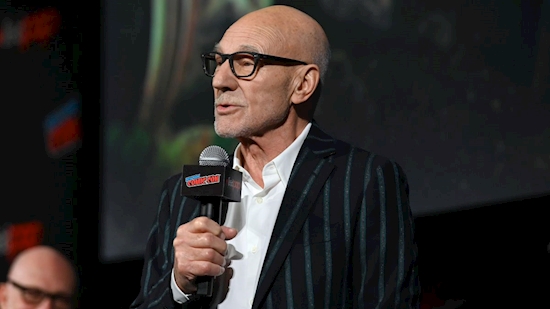Patrick Stewart, Billy Dee Williams Highlight a Common Misconception About Space Exploration
NEW YORK — This past weekend at the 2019 New York Comic Con, both Sir Patrick Stewart and Billy Dee Williams told Space.com how they feel about the future of human spaceflight, and their comments revealed a major and common misconception about how many view space exploration.
Williams, who most famously played (and will soon play again) Lando Calrissian in the "Star Wars" universe said that, while it is within human nature to explore, and so we will always be exploring and reaching further, we should focus our efforts on Earth.
At the "Star Trek Universe" panel, Stewart, who famously played Capt. Jean-Luc Picard in "Star Trek: The Next Generation," expressed a similar sentiment to Space.com. At first, he communicated his reluctance to address the issue, stating that it is a difficult question for him.
Related: New York Comic Con 2019: Amazing Space Cosplay Photos!
"My unease about the space program and space exploration is that I believe so strongly that we have issues on our own planet that need so much attention and adjustment and endorsement that I think, 'What might happen if we were to propel all of those energies — not to say the economics — that go into the space program to making this a world of equal opportunity and equality?'" he said.
The response received a roaring round of applause from the audience (though as one of the most beloved actors in all of "Star Trek" history, that is no surprise), and, while it gets a few things right, it highlights a common misconception about our species' continued journey to explore space — that exploring space doesn't help us here on Earth.
It is often thought that space exploration is something that is done solely to allow someone to claim that "We did it first," or "We landed there first." And, as far as the space race of the 1960s goes, it's true that that mindset was one of the largest motivating factors that pushed NASA to successfully land the first humans on the moon in 1969.
But the efforts that allowed NASA to accomplish that goal also led to the development of better suits for firefighters, improvements to heart monitors, solar panels, cordless tools, improved dialysis treatment methods, CAT scan technology and so much more.
With seemingly impossible goals like landing on the moon and Mars, new technologies have to be developed that have historically proven to be critical and even life-saving here on Earth.
Additionally, as we face the deadly, worsening consequences of climate change in a world fighting just to have those realities recognized, it is important to remember how space factors into how we understand and study Earth's climate.
"Space-based research is fundamental," Ben Orlove, a professor of public policy at Columbia University and a lead author on the 2019 IPCC special report, said to Space.com when he was asked about the importance of space to climate change research.
Data from satellites and experiments on and mounted onto the International Space Station are critical to our current and growing understanding of exactly how climate change is progressing, which is essential in trying to mitigate it and its repercussions.
Yes, there are some who want to just hop in a rocket and blast off somewhere far just to say they've done it. But, while Williams seemed to hit the nail on the head when he said that it is just within our human nature to explore, it is important to remember that exploration also does a world of good back down on our home planet.
From keeping our knowledge of climate change up to date to advancing life-saving medical technologies and more on the space station, our efforts in space are essential to life here on Earth.
Follow Chelsea Gohd on Twitter @chelsea_gohd. Follow us on Twitter @Spacedotcom and on Facebook.
Source: www.space.com

